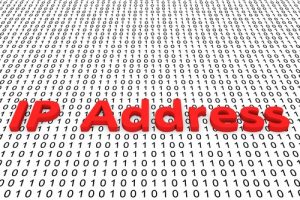
Recent estimates indicate that there are as many as 9 billion devices connected to the World Wide Web. Each of these devices has a unique Internet Protocol (IP) Address. An IP address is a string of numbers that are associated with a computer connected to the internet. An IP address both identifies the computer and makes it possible to address the computer. In this way, it’s similar to a physical address. Companies also use IP addresses to geolocate their web traffic. This helps businesses determine where the users who visit their website live. You may have heard that there are different kinds of IP addresses available: static and dynamic. So how can you know whether you need a static IP address or a dynamic one? Let’s take a closer look to find out.
Static IP Address
By definition, something that is static does not change. A static IP address, then, is one that stays the same. These addresses are assigned manually and typically cost a fee. If your computer has a static IP address, you will always have the same address when you connect from home. If you connect from a different location, however, the IP address will change.
Static IP addresses are good when you need consistency. For example, some IP addresses are public, meaning any computer or device can access them. For these addresses, it’s good to have a static IP so users can access them consistently.
To use an analogy, having a dynamic IP address is like having a phone number that changes constantly. So, if you’re primarily making calls, it’s not really a problem. But if users need to be able to connect with you, it’s better to have a static way to make contact.
That said, static IP addresses are also more costly. In addition to paying to set up a static IP address, users must pay to maintain it. This can quickly become costly.
Dynamic IP Address
A dynamic IP address, on the other hand, is one that does change. Unlike a static IP address, which is assigned manually, a dynamic one is automatically assigned to each device you connect to the network.
Dynamic IPs are ideal for everyday Internet users. This type of IP address doesn’t cost any extra and is simple to use.
Because dynamic IP addresses change often, they also tend to be more secure than a static one. After all, a moving target is harder to hit than a stationary one.
Which Do You Need?
For most users, the ease and flexibility of a dynamic IP address are preferable. Using dynamic IP addresses doesn’t require any additional setup. It also doesn’t cost any extra money.
That said, for businesses that need stability, or that host multiple applications, a static IP address could be the way to go. A static IP address is also necessary if you want to be able to remotely access a computer.
